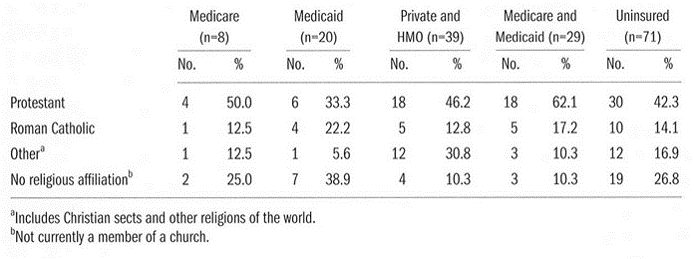P1028
Social stratification along race, class, and gender lines is associated with health-related thoughts and actions, rates of chronic illness, access to healthcare, and health outcomes. Stress is thought to play a mediating role in many of these relationships, with individuals in disadvantaged strata at increased health risk. Recently, researchers taking a biopsychosocial perspective have explored these associations, often qualitatively, using both indigenous and cross-cultural research methodologies.
In one such study, researchers explored variations in beliefs about self-care and self-care practices as a function of cultural factors and differential access to healthcare among chronically ill, demographically diverse African Americans. Findings suggest that spirituality, social support, and traditional approaches to healing positively influence self-care routines regardless of socioeconomic status. Other forms of social stratification also to influence self-care as the study found that the uninsured were less likely to incorporate advice from doctors into self-care routines. To explore how protective health factors such as spirituality intersect with health risk factors such as being uninsured, researchers categorized participants by religious affiliations and health insurance status as shown in Figure 1.
Find an error? Take a screenshot, email it to us at error@mytestingsolution.com, and we’ll send you $3!

